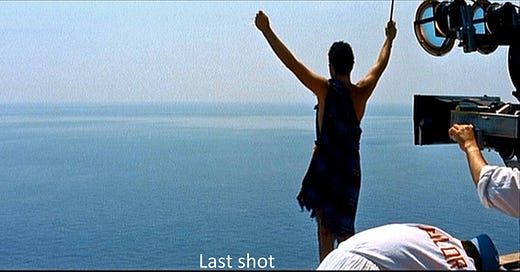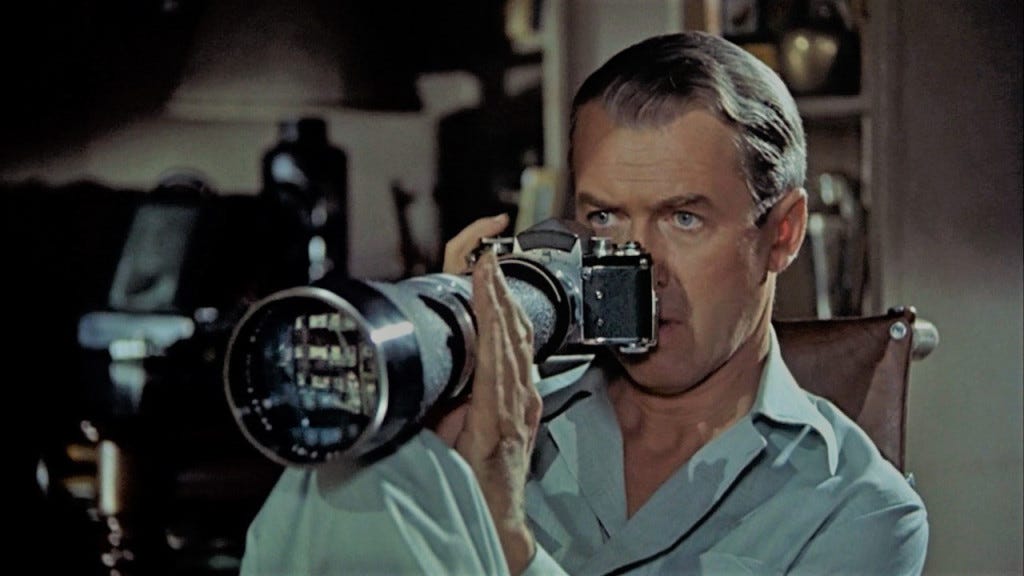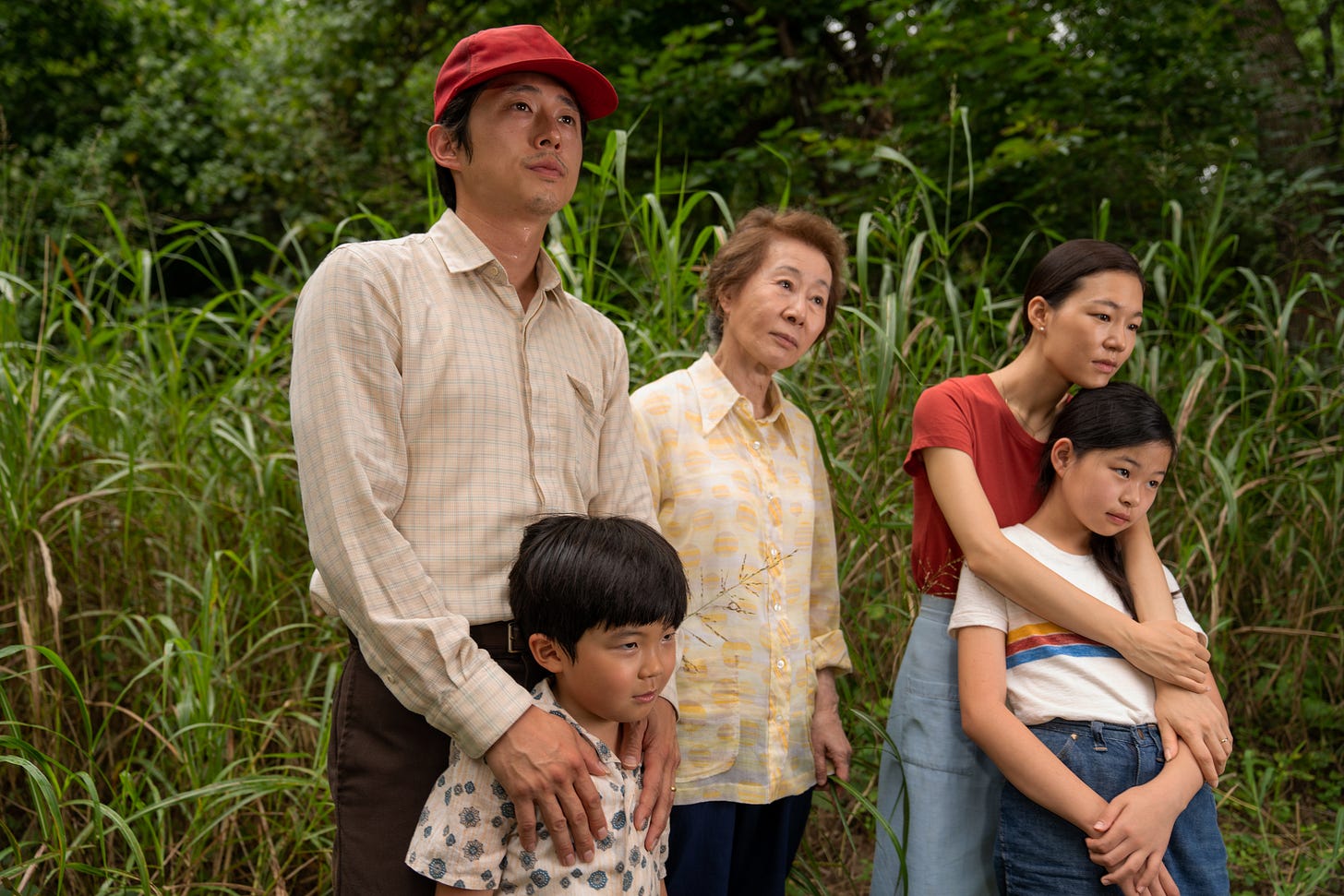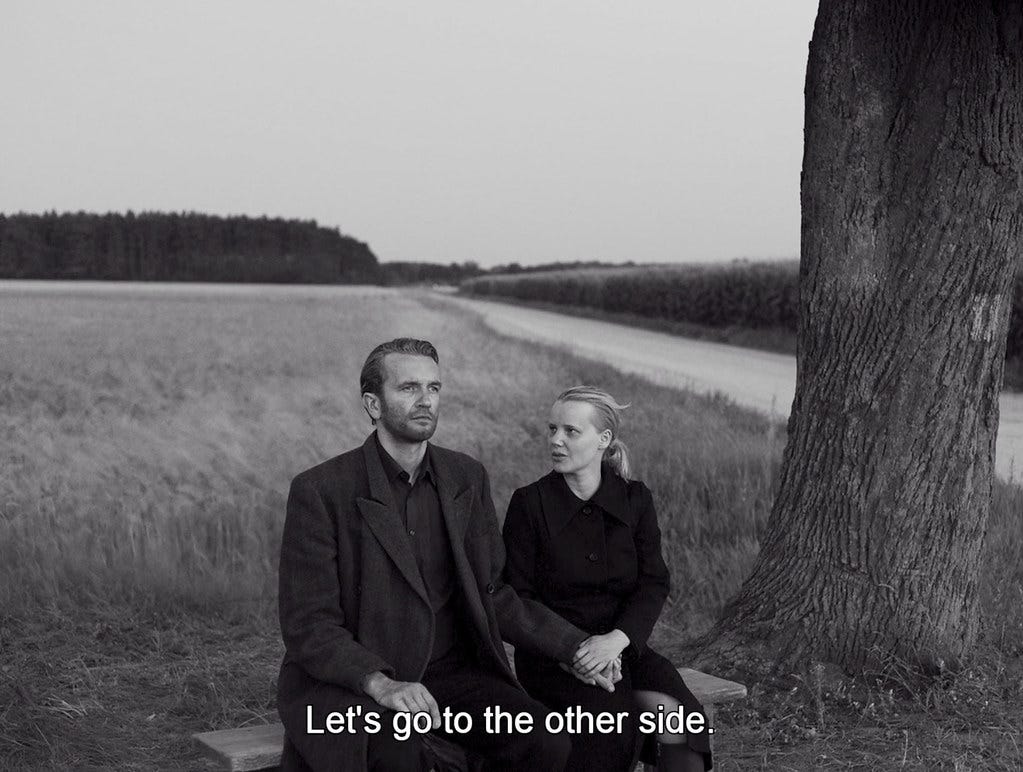I love films enough to distinguish between them and movies, but I’m not so obsessed as to not realize how snobby I sounded just then. I have a hard time articulating this passion (not just because I often come across as an uppity cinéaste à la Richard Brody). Some people are moved to tears by certain paintings, others feel their hearts soar when their favorite basketball teams triumphs. I’ve never had either of those experiences, but those feelings are not foreign to me because that’s how it is with me and film. My degree is in English literature and still no writer (with maybe one or two exceptions) has moved me like Fellini, intrigued me like Hitchcock, or completely knocked me over like Kubrick has done, over and over again.
Yet, there was a time when I couldn’t watch films. Not because I wasn’t allowed or because my life had become so busy that I didn't have the time. No, there was a time when their magic had almost compltetely worn off. I couldn’t watch films because the very act of doing so felt wrong. I felt distracted at best and guilty at worst when trying to take part in one of my favorite pastimes. Looking back on this thankfully brief period of my life, I see now that there were another of other underlying factors that accounted for my lack of joy in such a joyful thing. However, I think we all have times when our passions cease in making us feel passionate.
As I do most Saturday mornings, I sat down with my oatmeal and coffee, opened my notebook and clicked my pen no less than three times (just to be sure). This week, though, as I came to the page with ideas swirling around in my head, I couldn’t bring the pen to the paper. Fine, I told myself, no need to force it. As Nassim Taleb reminds us in Antifragile, “writing is only worth it when it provides us with the tingling effect of adventure… what the author is bored writing bores the reader.” Taleb only writes when he feels compelled to do so, suggesting that by waiting for the right moments we clarify our thoughts and intentions. You have to write from a place of necessity. It is here where we find those generative qualities: obsession, inspiration, and passion.
In training as a distance runner, there were certainly days when lacing up and heading out the door felt like a monumental task, days when I was uninspired to the point of dread. What makes a great distance runner is the ability to put these feelings aside and go out and run anyway. However, if this feeling persists for more than two weeks (a rough estimate), it might be your body telling you it’s time for a break. One coach, at the end of each season, went so far as to recommend time off enough to miss running. Only when you feel like you need to start running again could your body and mind truly be ready for the next training cycle. I don’t have the science to evidence this, but there is a lot of wisdom in it.
So it is with many of our other passions. We cannot be passionate about our passions always, in fact, if we were, they would cease to be passions. In a recent post from Forever Wars, journalist Spencer Ackerman shared his reading habits:
“At any given time, I’m reading five or six books. When reading any one of them feels like a chore, I put it down and switch to something that better fits my mood or my curiosity. Reading in a linear fashion, I’ve come to realize, makes me enjoy my favorite activity less.”
The key part of this passage is at the end: reading linearly makes him enjoy his favorite activity less. He is a passionate reader not because he tears through books at breakneck speed and with such narrow intensity. His passion has given him the wisdom that whenever it ceases in being fun, joyful, or meaningful, it’s time to remove himself so as to appreciate it more. It’s not such a paradox; in fact, it’s almost cliche. Absence makes the heart grow fonder yada yada yada. If you know me though, I think cliches are underrated, or at least unfairly maligned. Such heuristics for tempering our passions in order to grow them might not be ‘capital-T True',’ but they are true enough that to have stuck around for so long. We go to our passions when we need them most, yet this makes sense to us only after a period of absence, a delay. Only after watching a film can we think such thoughts as “I really needed to see that.”
And so if passions arise from some form of personal urgency, some fundamental necessity (we often downplay desires as simple “wants” when they often stand in for some deeper need), then where does my passion for movies come from? It’s a little more plain to see that rooting for a sports team plays to our tribal tendencies while paintings appeal to some deep rooted sense of beauty. It might be said, and indeed has been said, that films operate the same way. I’m not going to go so far as to say Bergman is some latter-day Rembrandt and not because his work is any less aesthetically significant (that’s for another post). The difference between Bergman and Rembrandt is not one of degree, but of kind.
When I look at paintings (even Rembrandts) I often feel walled off. Maybe it’s their static objectivity or the distance I feel from the artist. Conversely, when I watch good films I feel welcomed in. Films capture something so real to me in a way that Renaissance painting and the Boston Celtics never could. To misappropriate Godard: “photography is truth…cinema is truth 24 time a second.” Even Robert Burks’ gaudy technicolor splashes and Denis Villeneuve’s sci-fi futurism seem to get closer to the truth of experience than literary realism, or even (gasp) the objective reporting. A few weeks ago, in my first trip to the cinema in over two years, I saw Dune and was struck by how nuanced it’s approach to climate politics it was. It nailed the complexities of the issue better than our current black-and-white way of framing the discussion.
This effect has been amplified since moving to the Czech Republic and I, even though I have had such reactions before, have found this intensification curious. Why should I find their power even greater here than back home in the US? It could be that I have caught a streak of particularly affecting films, but I am skeptical. Even when I was a subscriber to the Criterion Channel there were movie nights when I wasn’t deeply immersed as I have been lately.
If films are escapism (which wouldn’t necessarily be a bad thing), then it is important to ask what we are escaping from but equally important to consider what we might be trying to escape to. There doesn’t seem to be something so unbearable or injurious about my current living situation that I should feel the need to escape from the world outside my flat. Quite the contrary. Moravská Třebová is an inviting little town and the Czech Republic is still foreign and exciting enough that I ought to be out exploring more of the country. Then maybe it’s not something I’m escaping from but something I am escaping to.
Perhaps it’s English, my mother tongue. I’ve often remarked that one of my biggest fears is becoming unintelligible to others to the point of broken connections and impossible communication. Having to live and work in a place where your language isn’t spoken can be very intimidating. I count myself lucky that I have an American roommate and a job in an English language department. Moreover, many of the films I watch and enjoy are foreign language films. I just finished Minari the other day and count it among the best films I’ve seen all year. But then, if a dearth of English can’t be to blame, what am I looking for (and what have I been lucky to find) when I sit down to watch a film?
When it comes to asking why questions, I’ve vacillated between two approaches, without landing on one, for the better part of six years now (six years ago being the time at which I was deciding on a college, a team, a future). One approach, the SUNY G Believe, Nietzschean-existentialist, “Find Your Why” approach, exhorts us to give a greater reason to our desires and our suffering, our passions and our burdens. The other approach, from Leslie Jamison’s The Recovering, a Platonic ideal of justification, answers “because because.” While I am deeply unsatisfied to say that I love films simply because I do, such a recognition acknowledges that any explanation I give will necessarily fall short.
I think the running example is an apt one. When running ceased to be meaningful to me, I would ride my bike, or go for walks, or, yeah, watch films. But a few days would pass and I feel like I was missing something, and sure enough, I’d find myself lacing up and heading out without even realizing what I was doing; my body knowing it needed to run as much as my mind wanted to run. I’m not religious, but I find this aspect of running to be my kind of spirituality. Similarly, watching films is not a distraction for me, but a focusing, an act in attention giving and attention receiving. The best films know that you are watching them and play tricks on this relationship between film and viewer (this is part of why Hitchcock is my all time favorite director). They play with our passions. Sure running tires me out, leaves me bruised, tricks me into thinking I’m in better or worse shape than I actually am. But it also gives me that sweet kick of endorphins, a medicinal dose of fresh air and escape, and, sometimes, an elusive second wind. So too with films: they can be brutal, exhausting, repulsive, or crude, but they can, at the same time, be evocative and even alluring.
Last night, I rewatched Pawel Pawlikowski’s Cold War because rewatching is the epitome of indulging our passions. The film itself is about failed attempts at suppressing passions and realizing that doing so only grows them. The two lovers spend years apart, seeing other people and leading different lives, and only when Zula is totally lost in the world of commercialized performance does she rediscover her love for Wiktor who comes to save her from herself.
At the end of the film, the two lovers sit on a bench looking at the field across the street. Zula whispers to Wiktor “let’s go to the other side… the view will be better over there.” If you can feel the crude metaphor forming in your head, I’m not here to say that going to the other side of the ocean has made my viewing better. Instead, I’ll just say that sometimes it takes a change of scenery to appreciate what you otherwise see everyday. I tell my students this, but in terms of learning a language. I give them vocabulary to look at and promptly erase it from the whiteboard. It is the act of forgetting that forces the brain to try and remember. Likewise, we have to go through moments of absence, loss, and homesickness to greater attach ourselves to those things we are passionate about. Films are not so great that I watch them every night. Instead, they wait, as I do, for those moments when passion once again comes forward to say “roll the tape.”
Ramble on!
Hey folks, I’m going to take a bit of a break from Rambler for the holiday because, as we learned above, it is time away from our favorite activities that helps us enjoy them more! With that said, thanks for reading along these past few months and I hope you will continue to do so. I might do a year-in-review post sometime before Christmas, but you can expect radio silence from about the 22nd to the New Year. In the meantime, please comment, share, and subscribe!







